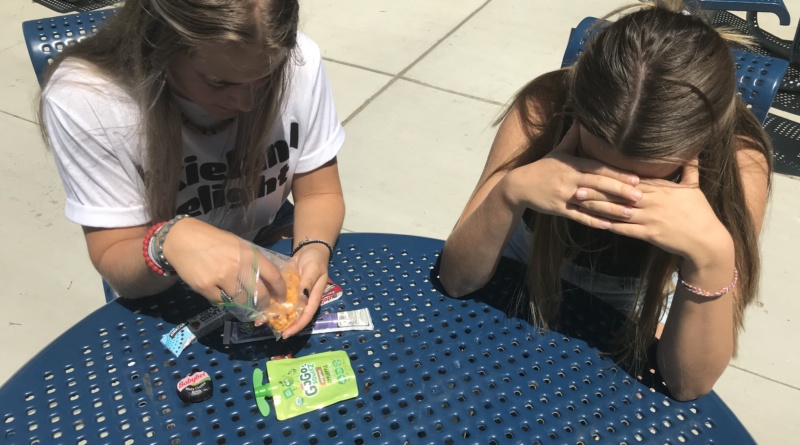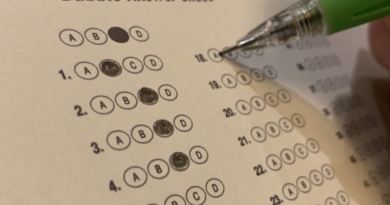OPINION: What should you do if your friend has an eating disorder?
PHOTO: Many students with eating disorders are sensitive to the subject and aren’t willing to talk about it. It’s helpful for Davis High students to be aware of what to do in these situations.
By Auden Marsh-Armstrong,
BlueDevilHUB.com Staff–
Eating disorders are very serious mental illnesses that can affect many people of all ages. According to the National Association of Anorexia Nervosa and Associated Disorders (ANAD), at least 30 million people suffer from an eating disorder in the U.S; yet awareness for eating disorders is shockingly abysmal.
A substantial reason why eating disorders lack public awareness is that there is major stigma surrounding mental illness. According to a survey conducted by the US National Library of Medicine National Institutes of Health that interviewed over 2,000 people, “98 percent of respondents agree that mentally ill people are stigmatized and discriminated against.”
This stigma could be the reason why many people with these disorders are too afraid to seek help for themselves or others.
Since “95 percent of those with eating disorders are between the ages of 12 and 25,” according to The Healthy Teen Project, high schoolers are especially affected by eating disorders. Therefore, it is crucial that students are prepared and know what to do if they suspect their friend has an eating disorder.
It is important that if you suspect your friend might have an eating disorder, you are able to recognize the symptoms.
According to The Healthy Teen, the most common eating disorders among teenagers are anorexia, bulimia and binge-eating disorder. Symptoms for eating disorders can vary depending on the type of eating disorder your friend is suffering from, but most include self-esteem issues, anxiety, withdrawal and depression.
Once you are able to recognize these symptoms, it is essential to learn how to prepare yourself for approaching your friend about the topic. Talking to your friend about their eating disorder may just provide them with the support they need to be able to seek help for themselves, so it is important to start there.
The best steps to follow in addressing your friend’s eating disorder are to rehearse how to bring it up with them, bring it up with them in a comfortable private environment, encourage them to seek professional help and tell someone if they do not get help for themselves.
You should first practice what you are going to say to your friend. Practicing will help you articulate what exactly you want to say and will help you be less anxious about the situation.
It is also very important to prepare yourself because they may not always react in a positive manner because not every person with an eating disorder will want help even if they need it.
When you finally do bring it up with your friend, you should try to make them feel as comfortable as possible. You can do this by having the conversation in a private environment that makes your friend feel comfortable and to make sure to remove any possible stigma you could bring to the discussion to make sure they do not feel judged.
During your conversation with your friend, it is essential to encourage them to seek professional help. You can help your friend by providing them with the contact information of a professional.
Hopefully, your friend will contact the professional on their own, but you may need to get help for them if they do not seek it themselves.
You may be afraid to get help for your friend and feel like you are betraying them by going behind their back. However, if your friend is suffering from an eating disorder, they need professional help and they need it immediately whether they realize it or not.



